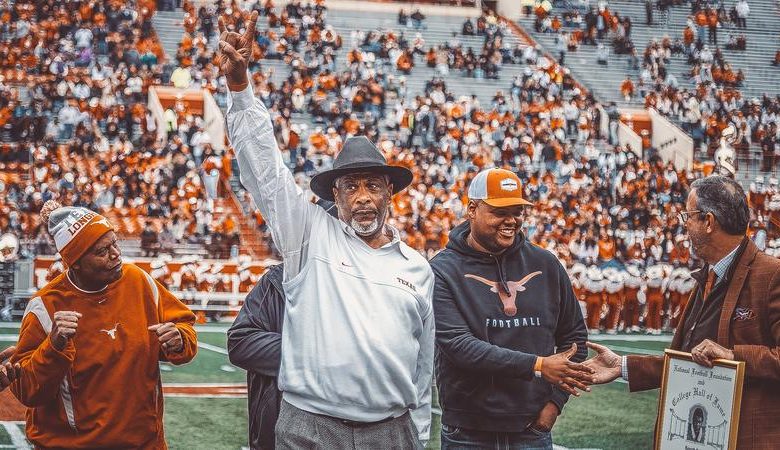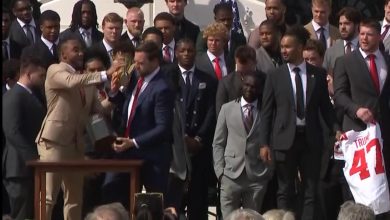Longhorn Legend and College Football Hall of Famer Kenneth Sims reportedly passes on

Kenneth Sims, the legendary Texas Longhorns defensive lineman and College Football Hall of Famer, has passed away at age 65. A giant in Longhorn lore, Sims died peacefully at his home in North Carolina on March 21 after battling an illness (footballfoundation.org).
Born October 31, 1959, in Kosse, Texas, Sims played for the Longhorns from 1978 to 1981. Standing 6’6″ and weighing 265 pounds in college, he distinguished himself with unmatched dominance at the line of scrimmage (houstonchronicle.com). A two-time consensus All‑American and Unanimous All‑American his senior year, Sims won the prestigious 1981 Lombardi Award—Texas’s first lineman to do so—and placed eighth in Heisman Trophy voting, even receiving first-place votes (footballfoundation.org).
During his collegiate tenure, Sims amassed jaw-dropping numbers: 322 tackles, 50 tackles for loss, 29 career sacks, 15 forced fumbles (a Texas record), seven fumble recoveries, and three blocked kicks (footballfoundation.org). He anchored defenses that led Texas to four straight bowl appearances, including the 1982 Cotton Bowl, and helped guide the Longhorns to national Top‑10 finishes in 1978 and 1981 (footballfoundation.org).
Drafted No. 1 overall by the New England Patriots in the 1982 NFL Draft, Sims continued to leave an impact in the professional ranks. Over eight seasons—mainly with the Patriots—he recorded 17 career sacks, made the PFWA All‑Rookie team, and played a key role in New England’s run to Super Bowl XX (though a late-season leg injury sidelined him) (patriots.com).
Inducted into the College Football Hall of Fame in 2021 and the Texas Athletics Hall of Honor in 1997, Sims returned often to the Fifty Acres—supporting women’s athletics, attending letterman events, and inspiring the next generation. His alma mater remembered him as “a truly dominant force on the field and a cherished member of the Hall of Fame and the greater college football community” (footballfoundation.org).
Teammates, coaches, and former opponents reflected on more than his stats—they remembered the person. Longtime teammate Jeff Holle recalled, “Kenneth was one of the greatest players I ever played with… but more importantly he was just a genuinely nice, humble, small‑town guy” (houstonchronicle.com). Another peer said he had “the biggest hands on a human”—a testament to the physical gifts complemented by a huge heart (ontexasfootball.com).
Sims also broke barriers off the field. He openly supported desegregation in Texas football and donated to women’s sports scholarship initiatives—leaving a legacy of positive social influence (houstonchronicle.com).
Funeral services were held April 5 at Mt. Zion Church in Kosse, Texas, marking a final hometown tribute for the man once nicknamed “Pup,” remembered fondly for his playful spirit and powerful presence (texaslonghorns.com).
His death leaves a void in both Texas football history and the broader college football world. As a generational talent, he redefined excellence at the line of scrimmage and carried himself with integrity off it. His life story—from small-town Texas to national recognition—served as a blueprint for dedication, humility, and leadership.
Kenneth Sims will be remembered not only for his stats and accolades, but for the way he carried himself: as a leader, a pioneer, and a devoted Horn. His legacy endures—in record books, in campus traditions, and in the hearts of all who were touched by his life.









